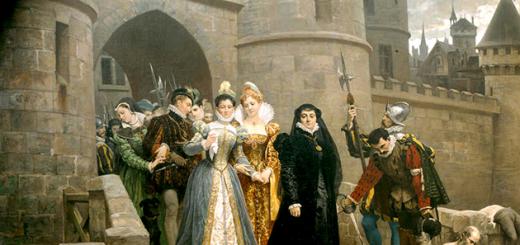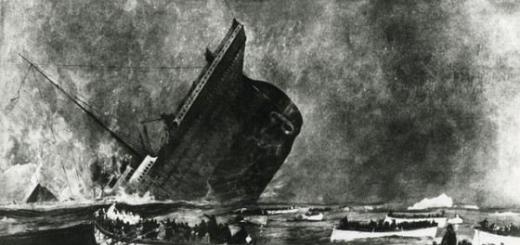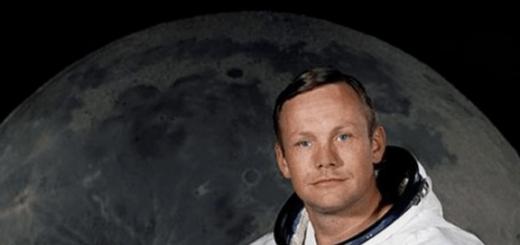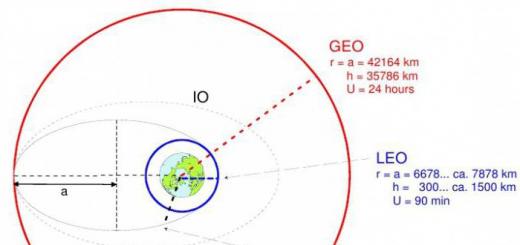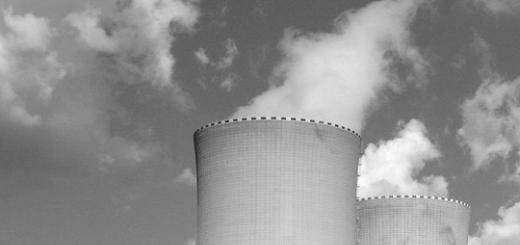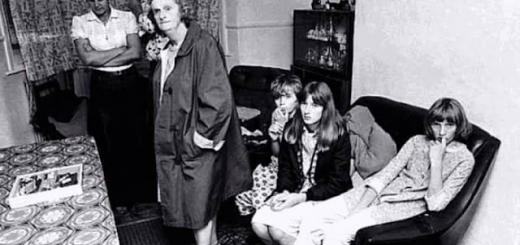http://any-book.org/download/62437.html
Reveal the reasons for the emergence of politics as a relatively independent sphere of human life and society.
The policy arose in connection with the need to realize such interests of groups that affected their social status and could not be satisfied without the intervention of public authorities, suggesting the use of coercive methods. Thus, politics began to regulate not all group interests, but only those that affected their powerfully significant needs and assumed the involvement of a “third” force in the person of the state in the conflict. Due to the spontaneous nature of such competition, K. Mannheim called politics an “independent” value, i.e. a phenomenon that cannot arise as a result of artificial reconstruction.
How is politics different from other areas of public life?
In politics, communication is carried out about power and is aimed at expressing social interests and managing society, and in economics - about the production, exchange and distribution of material goods and is aimed at the material life support of people. Politics is a kind of search mechanism for social development that develops its projects, and law is a mechanism for giving such projects a generally significant character. Politics and religion are, respectively, the sphere of secular and the sphere of spiritual power in society, which throughout history have fought for influence on society and on each other. Morality and politics can be seen as different ways of regulating people's behavior. If morality regulates a person's behavior from the inside by correlating the motives of his actions with generally recognized moral values (goodness, nobility, justice, etc.), then law and politics are among the methods of external regulation.
Compare the main theoretical approaches to understanding politics and, in the context of this, name the distinguishing features of politics as a social phenomenon.
Politics is designed to solve the problem of protecting, protecting social values - public order, personal dignity of citizens, their security, freedom, legality, sovereignty, and so on, using appropriate institutions and organizations. An important feature of politics is that it has power, is able to implement sanctions in one form or another in relation to individual citizens and entire social groups, when it becomes necessary.
Define the structure of the policy. What are the features of the interaction of policy subjects with other elements of it?
Structure: political organization, political consciousness, political relations, political culture, political power, subjects of politics. Features of the interaction of the subject of politics with other elements are subject-object relations. All other elements of the policy framework can act as an object in these relationships.
What criteria underlie the selection of policy types?
Subject of policy; Spheres of political life; Object of influence; Activity priority (goal)
Expand the content of the function of the integrity and stability of society.
is carried out due to the fact that politics determines the projects of the future, social guidelines and direction of development, providing them with resources.
Define the content of the concepts of "goals", "means" and "methods" in politics.
The goals of the policy are internally contradictory and varied. Its general goal in the social system is the integration of an internally differentiated society, linking the conflicting private aspirations of citizens with the common goal of the whole society. The state is called upon to serve as a guarantee of a harmonious combination of private and general goals. The means of policy are tools, tools for the practical implementation of goals, the transformation of ideal motives into real actions. "Means" and "methods" of politics are close concepts. Means are specific factors of influence of its subjects on objects: propaganda campaigns, strikes, armed actions, electoral struggle, etc. The methods of a policy usually characterize the ways in which its means are affected. These include, first of all, violent and non-violent methods, coercion and persuasion.
Can politics be moral? .
the influence of morality on politics can and should be carried out in a number of ways. This is the setting of moral goals, the choice of methods and means that are adequate to them and the real situation, taking into account moral principles in the process of activity, and ensuring the effectiveness of policy. However, fulfilling all these requirements in real politics is a very difficult task. In practice, its morality depends not so much on the proclaimed goals, but on the methods and means used in the process of achieving them.
What are the reasons for the growth in the modern world of terrorism as a method of political struggle?.
“The lack of unity in approaches, assessments and methods of combating terrorism, the lack of a proper legal framework - all this is the reason for the growth of terrorism” (V.V. Putin)
Match the object and subject of political science.
object the study of political science is politics- political processes occurring in society Subject political science are institutions, phenomena and processes that are so different in nature, such as:
history of the development of political doctrines and theories
political institutions (the institute of parliamentarism, the institute of executive power, the institute of public service, the institute of the head of state, the institutes of judiciary)
political culture, political behavior
political consciousness
public thought
international relationships
What is the content of the term "political"?
App., by value political
State, civil law.
A person who was related to the revolutionary movement (pre-revolutionary colloquial)
Why is knowledge of political science necessary for a specialist in your field of study?
the more political science uses the law, the more thoroughly she studies politics, and the better lawyers know the science of politics, the wider their political outlook and culture.
Correlate the content of political philosophy, political theory and empirical political research
political philosophy serves as a general methodological basis for empirical political research, determines the meaning of various concepts, reveals universal principles and laws in the relationship between man, society and government, the ratio of rational and irrational in politics, its moral criteria and motivational basis, determines the boundaries and principles of state power and etc. Political philosophy was historically the first form of existence of political theory. Philosophical knowledge constitutes the core of a person's worldview and the political culture of society.
Name the main categories of political science. Is there a main (initial) category among them?
categories revealing the dialectic of political being and political consciousness. These are such as: political relations, political theory, political ideology, political psychology, etc.
categories that reveal the relationship between interaction in politics and society: the state, civil society, political power, political institutions, parties, socio-political movements, etc.
The peculiarity of political science as a science lies in the fact that the key issue and its main category is political power. Political science examines all social phenomena and processes in relation to political power.
How can one explain the existence within the framework of modern political science of a number of particular, relatively permanent political disciplines?
Political science develops in close interaction with other humanities. They are all united by a common object of study - the life of society. Politics, as an object of study, is of interest to many social, humanitarian and even natural sciences. They have many common categories, but the subject of study is significantly different.
How do the methods, techniques and methodology of political research compare?
Methodology is the sphere of political consciousness, in which the ways of comprehending political reality are realized, as well as the self-awareness of the political mentality itself. The methods of political science research in most cases are a form, link or way of adapting general and particular methods to the study of specific and in their own way unique political phenomena and processes, involving a certain combination and proportion of "traditional", qualitative and "new" empirical, quantitative methods. political knowledge, not reducible to any of these methods separately.
What are the differences between the political thought of the Ancient East and the ancient civilizations of Greece and Rome?
The political teachings of the Ancient East are characterized by the fact that political thought was not singled out as an independent field of knowledge, it was expressed in a mythological form, and the understanding of the divine origin of power dominated.
Political doctrines Ancient Greece and Ancient Rome. Characteristic features of the political teachings of this stage: the gradual liberation of political views from the mythological form; their isolation as a relatively independent part of philosophy; analysis of the structure of the state, classification of its forms; search and definition of the best, ideal form of government.
What role did the era of enlightenment play in the development of world political thought?
The Age of Enlightenment can rightly be called the "golden age of utopia." Enlightenment primarily included a belief in the ability to change a person for the better, "rationally" transforming political and social foundations. In the field of politics, jurisprudence and socio-economic life - the liberation of man from unjust bonds, the equality of all people before the law, before humanity. The Age of Enlightenment marked a major turning point in spiritual development Europe, which influenced almost all spheres of socio-political and cultural life. Having debunked the political and legal norms, aesthetic and ethical codes of the old class society, the Enlighteners did a titanic work on creating a positive system of values, addressed primarily to a person, regardless of his social affiliation, which organically entered the blood and flesh of Western civilization.
What is the sociologization of political thought in XIX in?
In strengthening their applied character. In particular, the development of empirical research in the field of political sociology was aimed at providing practical assistance to the state by drawing up specific recommendations for the implementation of political control over society.
What is the behavioral trend in political science?
Behaviorism is one of the leading trends in American psychology of the late 19th and early 20th centuries, the science of behavior. Behaviorism is based on the understanding of human behavior as a set of motor and verbal reactions to the influence of the external environment. The conceptual foundations of behaviorism have influenced Western political science. The behavioral direction in political science is the study of politics, political relations through the prism of the behavior of individuals and groups based on the widespread use of empirical methods of analysis.
What are the main political concepts and theories considered in modern Western political science in terms of their political and ideological orientation?
Behavioral direction
Structural and functional direction
Hermeneutics
Institutional direction
Political and sociological direction
Elitological direction
What are the features of the current stage of foreign political thought (since the end of the 70s of the XX century)?
The period from the end of the 70s. – XX century. It is characterized by the search for new paradigms for the development of political science. During this period, the following were developed and developed:
futurological concept of a single world state; the concept of post-industrial society; the concept of the information society; the concept of national interest; theory of elitist democracy; power concept of power.
Modern political theories and concepts can be classified on the following grounds:
According to the level of the studied objects of politics: the concept of global or international order; public level concepts; concepts of the political sphere of society and political development; concepts of the most important subsystems of the political system of society; concepts of individual or particular political phenomena.
By political and ideological orientation: liberal; conservative; social reformist; Marxist Anarchist.
According to the specifics of the subject and object of research: political and legal; sociological; psychological: empirical.
Name the ideological and political currents in the development of Russian political thought in XIX – beginning XX in
Liberalism (the ideology of Westernism). M.M. Speransky, P.Ya. Chaadaev, N.V. Stankevich, P.V. Annenkov. By the beginning of the 20th century formed on its basis: classical liberalism. V.N. Chicherin; socialized liberalism. P.I.Novgorodtsev. Conservatism (ideology of Slavophilism): reactionary Slavophilism. N.M. Karamzin, S.S. Uvarov, K.P. Pobedonostsev; reformist Slavophilism. A.S.Khomyakov, N.Ya.Danilevsky, V.S.Soloviev. Radicalism. Its foundations were laid by N.A. Radishchev, P.I. Pestel, N.P. Ogarev, A.I. Herzen, V.G. Belinsky, D.I. Pisarev, N.G. By the beginning of the 20th century Bolshevism was formed on the basis of radicalism. V.I. Lenin, I.V. Stalin; anarchism. M.A. Bakunin, P.N. Tkachev, P.L. Lavrov, Social reformism (Menshevism). Yu.O.Martov, G.V.Plekhanov
What, in your opinion, are the differences in the development of domestic political thought in the Soviet and modern periods?
After the October Revolution, the process of crystallization political ideas interrupted into a separate discipline. The task of political theory was reduced to substantiating the correctness of the political course pursued by the CPSU; political theory was considered bourgeois, and developed within the framework of scientific socialism. policy studies were aimed not at deepening the knowledge of the mechanisms of political and state regulation, but at substantiating the prerequisites for the withering away of the political organization of society. For all these reasons, in the Soviet period, political theory lagged noticeably behind world science.
Why can't society do without power?
society is a collection of individuals whose capabilities differ markedly. People occupy different social positions in society, have different standards of living, material wealth, education, are engaged in different types of work. some people are talented, others are not very talented, some are active, others are passive, etc. All these manifestations of the natural and social inequality of people in society give rise to incompatibility, and sometimes the opposite of their interests and needs. If it weren't for the government, then society would perish under the weight of endless internal contradictions and struggle. The authorities, on the other hand, coordinate these diverging interests, regulate the relationship between their bearers, ensure the interaction of social actors, and thereby protect society from anarchy and decay.
What content is introduced into the sign of power "sovereignty"?
Sovereignty is the independence of state power from any other power within the country and outside it, expressed in its exclusive, monopoly right to independently and freely decide all its affairs. This is one of the indicators of the perfection of the state, that it is becoming developed. At the present stage of civilization, sovereignty is an inalienable property of the state. It concentrates in itself all the most essential features of the state organization of society.
What are the differences between the behaviorist and structural-functional interpretations of power?
Behavioral approach: Power is interpreted as a special type of behavior in which some people command and others obey. This approach individualizes the understanding of power, reduces it to the interaction of real personalities, paying special attention to the subjective motivation of power.
Structural-functionalist approach: Power is seen as a way of self-organization of the human community, based on the expediency of separating the functions of management and execution. Without power, the collective existence of a person, the joint life of many people, is impossible.
What are the criteria for selecting types of power? What is the difference between political power and state power?
Criteria: in terms of its social level, political and non-political, way of organization, legality,
All state power is political in nature, but not all political power is state power. Political power - public, strong-willed relations that are formed between the subjects of the political system of society (including the state) on the basis of political and legal norms. State power - publicly political, strong-willed (kerіvnitstva - subordination) relations that are formed between the state apparatus and the subjects of the political system of society on the basis of legal norms, from spirany, if necessary, to the state primus. State power is relatively independent and forms the basis of the functioning of the state apparatus.
Match the content of the following forms of power - "domination", "leadership" and "management"
domination is inextricably linked with power, is a form of its social organization. Domination is expressed in economic, political and ideological forms. Management- this is the ability of an individual, party, class, group to carry out its political line by influencing various methods and means of power on spheres, objects, collectives, individuals. Management is carried out on the basis of vertical connections, relationships of subordination and requires unconditional subordination of the performer to the leader. The basis of leadership is the administrative system, the strictest discipline and self-discipline. The meaning and purpose of management is to enforce the functioning of the entire system to achieve the goals of the organizer. Control- this is the use of the authorities' powers to form the purposeful behavior of objects. Management should ensure optimal interaction between labor collectives, parties, the population of the region, district, etc. Through management and organization, the implementation of political, economic and other programs is carried out.
What resources of power are used by the modern political regime in Russia?
Economic: fertile lands, minerals, plants, factories, money, equipment, etc.
Social: education, healthcare, social security, etc.
Political: political structuring of power, its organization, legitimacy, the image of leaders, realized social problems that are significant for the masses, international political means of solving global and foreign policy problems, etc.
Spiritual: knowledge, information, means of obtaining and disseminating them. As well as the traditions of society, cultural heritage, public moods of people, prestigious education
Forces: armed forces, law enforcement agencies, state security agencies and other law enforcement agencies.
Demographic resources
The resources of the executive power system in Russia include, in addition to traditional research work, a number of specific proposals aimed at improving the organization and regulation of the public service, information support for the executive power, etc.
What content is introduced into the concept of "legitimate power" and how does it correlate with the concept of "legal power"?
Legitimacy means the recognition by the population of this power, its right to govern. Legitimate power is accepted by the masses, not just imposed on them. The masses agree to submit to such power, considering it fair, authoritative, and the existing order is the best for the country. Legality and legitimacy are not the same thing. The legality of power is a legal justification for the legal existence of power, its legitimacy, compliance with legal norms. Legitimacy has no legal function and is not a legal process. Any government that makes laws, even unpopular ones, but ensures their implementation, is legal. At that time, it may be illegitimate, not accepted by the people. In society, there may also be illegal power, for example, the mafia.
Determine the resources of rational-legitimate power
rational legitimacy arising from people's recognition of the justice of those rational and democratic procedures on the basis of which the system of power is formed. This type of support is formed due to a person's understanding of the presence of third-party interests, which implies the need to develop rules of general behavior, following which creates an opportunity for the realization of his own goals. In other words, the rational type of legitimacy has, in fact, a normative basis characteristic of the organization of power in complexly organized societies. People here are subject not so much to personalities embodying power, but to rules, laws, procedures, and, consequently, political structures and institutions formed on their basis. At the same time, the content of rules and institutions can dynamically change depending on changes in mutual interests and living conditions;
What type of legitimacy of political power takes place in modern Russia?
multi-element legitimacy - simultaneously relies on traditions, beliefs, feelings, rationality, etc. The situation of economic and social instability reduces the possibilities of power, since its own social base is still small and it constantly has to reconcile very different, and sometimes even opposing interests. For these reasons, multi-element legitimacy reflects the discrepancy between the legality of power (its constitutionality) and legitimacy (support by the majority of the population), and gives rise to a contradictory attitude towards its decisions.
What is political socialization and what role does it play in the formation of personality as a subject of politics?
Political socialization is the process of integration (entry) of a person into the political life of society. This process begins in early childhood and continues throughout the life of the individual. Political socialization gives a person the opportunity to adapt to a particular political system, learn the requirements of status behavior, adequately respond to certain political phenomena, determine their political position, their attitude to power. However, the main thing is that in the process of socialization a person becomes a full-fledged subject of the political process, able to realize and protect his personal and group interests.
What is the content of the concept of "agents of socialization"?
A.G. institutions, people and social groups that promote socialization personality. Since socialization is divided into two types - primary and secondary, agents and institutions of socialization are divided into primary and secondary. Agents of primary socialization are the immediate environment of a person: parents, brothers, sisters, grandparents, close and distant relatives, babysitters, family friends, peers, teachers, coaches, doctors, leaders of youth groups. Agents of secondary socialization - representatives of the administration of the school, university, enterprise, army, police, church, state, employees of television, radio, press, parties, courts, etc.
How do the types of political socialization compare in contemporary Russia?
societies moving from totalitarianism to democracy are characterized by the contradictory interweaving of two tendencies in the process of political socialization. On the one hand, the democratization of public life expands the possibilities for the political participation of the individual, the inclusion of previously politically passive groups of the population in politics, and increases the awareness of citizens about the activities of power structures. On the other hand, political apathy, alienation, disbelief are growing as a reaction of an individual and mass consciousness undergoing a psychological restructuring to a drop in living standards and the collapse of ideals.
What is the reason for the special role of political elites in the political life of society?
The political status of the elite is determined by its rights and obligations in society: it prescribes to it the right to make the most important political decisions, but at the same time makes it responsible for the consequences of their implementation. Importance political elite in society due to the role of politics, acting as a mechanism for streamlining and regulating social relations, the implementation of generally significant interests. The political and managerial functions in society are carried out by the political elite by making the most important political decisions. To do this, she needs special knowledge that most of the population lacks. In addition, political elites represent group interests in politics and create optimal conditions for their implementation and coordination. Consequently, the political elite is a privileged group that occupies leading positions in power structures and is directly involved in making the most important decisions related to the use of power.
Russian society cannot exist without politics, like any other.
There are exceptions in the form of individuals who are not interested in politics. They do not read newspapers, do not follow the news, do not go to elections and do not participate in the life of society. True, such uniqueness is rare.
If you renounce politics, then politics will live without you. If a person is not interested in politics and economics, then he does not understand the trends in these areas of social development. A person can live without politics, but society as a whole cannot, unless of course it is a primitive society.
In my understanding, politics is the art of government. Politics and society are inextricably linked. Society consists of social groups that are united by common goals. Politics just expresses their interests. In order for the state to develop, it is necessary to take into account the interests of different strata of society.
Ukraine can be cited as an example of the unsuccessful development of the state. In my opinion, it is obvious that there is no "art of government" there, but there is a fight for power, an interest in dividing the country into pieces. The oligarchs are in power, and they do not express the interests of the middle and lower strata of society. The state is falling apart.
Preserving and expanding the borders of the state - this is the policy of the state. An example from history is the policy of Peter 1.
AT early XVIII in. as a result of many years Northern war with Sweden, Russia gained access to the Baltic Sea, taking possession of the mouth of the Neva and the territories of modern Estonia and Latvia. In 1712, St. Petersburg, founded on the coast of the Gulf of Finland of the Baltic Sea, became the capital of Russia, which greatly facilitated Russia's ties with European countries. In 1721 Russia proclaimed itself an empire. In the second half of the 18th century, after three partitions of the Commonwealth, the lands of Lithuania, Belarus and Right-Bank Ukraine became part of Russia. In the same period, as a result of victories over Ottoman Empire The state includes the coasts of the Black and Azov Seas (Novorossiya). AT early XIX in. was joined to Russian Empire Finland, part of Poland and the territory between the rivers Dniester and Prut (Bessarabia). By the end of the period, the area of the Russian Empire exceeded 16 million km 2.
Peter 1 significantly expanded the borders, doing everything for the good of the empire. In this casepolitics is a tool for the implementation of powerfully significant interests social groups.
Thus, politics is a necessary part of our life, without which it would not be possible for a person to express his interests in society.
In the section on the question Help asked by the author Fgh dfgh the best answer is C1 Based on the text, reveal the essence of law. What features distinguish it from other social institutions?
Law is a part of social control, it expresses the basic postulates of a given society, based on state support. Law as a social institution is a way of regulating people's behavior, a measure of their freedom, which finds its expression in a system of universally binding social norms, established or sanctioned by the state, regulating the actions, behavior and relations of people and provided with state coercion or its threat.
Signs of law that distinguish it from other social institutions:
State establishment
obligatory
State sanctions
State guarantees
C2 What is the role of law, according to the author, in historical development humanity? Explain what this role is about.
The role of law in the historical development of mankind is to keep people from anti-social behavior and ensure the fulfillment of their duties for the benefit of a civilized society.
C3 The author argues that not every right and not under all conditions is the embodiment of humanism and civility. Based on the knowledge of the social science course, give examples of states with such legal systems.
In most cases, these were totalitarian states:
USSR under Stalin
Germany under Hitler
Italy under Mussolini
C4 Explain the relationship between the concepts of "law" and "law" . Which one is broader in content? Give three relevant justifications.
The concepts of "law" and "law" are interrelated and interpenetrating, which cannot be broken off and even more so opposed. But they cannot be identified. In terms of its content, the concept of “law” is wider than the concept of “law”, since law is the totality, or rather, the system of laws existing in a given state. The following can be given as justifications:
The right finds its expression not only in laws, but also in by-laws and in court decisions.
Law is not only laws about themselves, but also their action, relations based on them.
Law can also manifest itself in a non-legislative form: there are also natural law, universal human rights, principles and norms of international law.
Read the text and complete tasks 21-24.
Society cannot do without social, and then political institutions - stable social or political institutions, institutions, associations and communities that perform social or political functions necessary for society.
Together with human society, social power arises as its integral and necessary element. It gives integrity to society, serves as the most important factor of organization and order. Under the influence of power public relations acquire the character of managed and controlled relations, and the joint life of people becomes organized. Thus, social power is an organized force that ensures the ability of a particular social community (a ruling subject) to subordinate people (subjects) to its will, using various methods, including the method of coercion. It is of two types: non-political and political.
Power cannot function apart from the will and consciousness of people. Will is the most important element of any social power, without which it is impossible to understand its nature and the essence of power relations. This is due to the fact that power means, on the one hand, the transfer (imposition) of one's will by those in power on those who are subject to it, and on the other, the subordination of those who are subject to this will. Will firmly connects power with its subject: power belongs to the social community whose will is embodied in it. Subjectless, that is, belonging to no one, there is no power and cannot be. That is why in the doctrine of power an important place is occupied by the concept of "ruling subject" - the primary source, the primary bearer of power.
Power is also impossible without the objects of its influence - individuals, social groups, society as a whole. Sometimes the subject and object of power coincide, but most often the ruling and the subject are clearly distinguished and occupy a different position in society.
Emphasizing the importance of the will as one of the defining elements of power, one should not belittle its other structural elements, in particular such as strength. Power may be weak, but devoid of strength, it ceases to be real power, since it is not capable of translating the will of power into reality. Power is stable due to the support of the masses, that is, it relies on the power of authority. The ruling subject often relies on ideological influence, including deceit and populist promises, to impose his will on the subject. But power, especially state power, has substantive and material supports - coercive organs, armed organizations of people.
The defining feature of power is the ability of those in power to impose their will on others, to dominate those who are subject. Hence the negative side of power, expressed in the possibility of its abuse and its arbitrary use. It often becomes the subject of sharp struggle and clashes between people, political parties, strata and groups.
Explanation.
A correct answer must contain the following elements:
1) two main elements that form the system of social power:
Will and strength;

